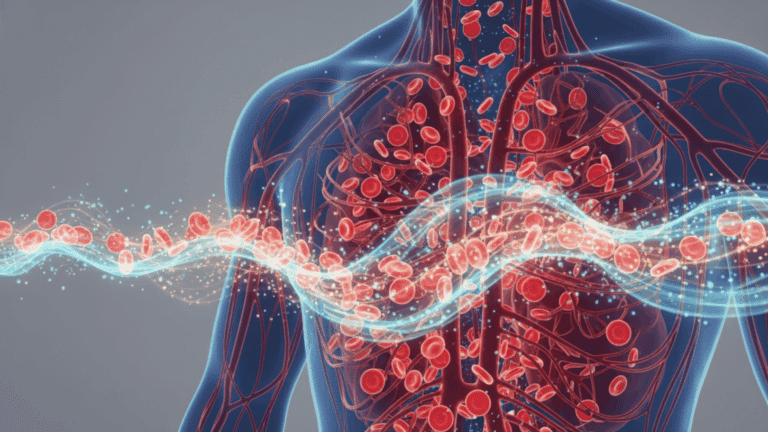The riddle “What goes through cities and fields but never moves ?” leaves many people puzzled despite its seemingly straightforward nature.
The answer to this classic puzzle is something people encounter almost daily.
This article breaks down the riddle’s clever wordplay, explains why the solution makes perfect sense, and introduces similar brain teasers that employ the same linguistic tricks.
The Answer to The Riddle – “A Road.”

A road is the answer to the riddle of what goes through cities and fields but never moves that stretches through both busy cities and quiet fields without ever moving from its spot.
It stays fixed in place while cars, people, and animals move, as roads are always the path, never the traveler.
Roads connect places and help people travel from one point to another. They can be made of different materials, such as concrete, asphalt, or gravel.
Roads have existed for thousands of years. The Romans built some that still exist today. They come in many shapes and sizes, from small country lanes to huge highways with many lanes.
Enjoyed That? Here Are More Riddles to Tickle Your Brain
If you loved solving these, get ready for more brain-teasers! Challenge yourself with these fun and tricky riddles to keep your mind sharp!
1. What has hands but can’t clap?
A clock
2. What has keys but can’t open locks?
A piano
3. What has a heart that doesn’t beat?
An artichoke
4. What can fill a room but takes up no space?
Light
5. What gets wetter as it dries?
A towel
6. What has a neck but no head?
A bottle
7. What comes down but never goes up?
Rain
8. What runs but never walks, has a bed but never sleeps?
A river
9. What has cities with no houses, roads with no cars?
A map
10. What can be cracked, made, told, and played?
A joke
11. What has one eye but can’t see?
A needle
12. What belongs to you but others use it more than you do?
Your name
13. What is always in front of you but can’t be seen?
The future
14. What comes once in a minute, twice in a moment, never in a thousand years?
The letter “m”
15. What is full of holes but still holds water?
A sponge
16. What gets broken without being held?
A promise
17. What has a face and two hands but no arms or legs?
A clock
18. What can travel around the world while staying in one spot?
A stamp
19. What has many teeth but can’t bite?
A comb
20. What has legs but doesn’t walk?
A table
21. What has one head, one foot, and four legs?
A bed
22. What goes up but never comes down?
Your age
23. What has ears but cannot hear?
Corn
24. What has a spine but no bones?
A book
25. What has four wheels and flies?
A garbage truck
26. What word is spelled incorrectly in every dictionary?
Incorrectly
27. What has a thumb and four fingers but is not alive?
A glove
28. What has an eye but no vision?
A hurricane
29. What kind of band never plays music?
A rubber band
30. What comes after thunder and lightning but never before?
The letter “g”
31. What gets sharper the more you use it?
Your brain
32. What begins and ends with “e” but contains only one letter?
An envelope
33. What has no beginning, end, or middle?
A doughnut
34. What has words but never speaks?
A book
35. What flies without wings and cries without eyes?
A cloud
36. What can you catch but not throw?
A cold
37. What has no body and no nose but can still sneeze?
A ghost
38. What kind of coat can only be put on when wet?
A coat of paint
39. What’s orange and sounds like a parrot?
A carrot
40. What can you hold without touching?
A conversation
41. What can’t be used until it’s broken?
An egg
42. What’s always coming but never arrives?
Tomorrow
43. What’s easy to lift but hard to throw?
A feather
44. What begins with t, ends with t, and has t in it?
A teapot
45. What has a ring but no finger?
A telephone
46. What gets bigger the more you take away?
A hole
47. What do you throw out when you want to use it and take in when you don’t?
An anchor
48. What can you break, even if you never pick it up or touch it?
A silence
49. What comes in pairs but you use only one?
Scissors
50. What can’t talk but will reply when spoken to?
An echo
51. What comes at night without being called and is lost in the day without being stolen?
The stars
52. What kind of tree can you carry in your hand?
A palm
53. What’s tall when it’s young and short when it’s old?
A candle
54. What has a tongue but cannot talk?
A shoe
55. What’s black and white and read all over?
A newspaper
56. What has no life but can die?
A battery
57. What kind of house weighs the least?
A lighthouse
58. What never asks questions but always gets answered?
A doorbell
59. What kind of cup doesn’t hold water?
A hiccup
60. What’s bought by the yard and worn by the foot?
A carpet
61. What’s full of keys but can’t open a single lock?
A keyboard
How Riddles Help With Brain Growth and Problem-Solving
Riddles do more than entertaining. They work as mental exercises that strengthen the brain in various ways.
When people solve puzzles like “what has legs but doesn’t walk,” they use different thinking skills that help their minds stay sharp and active.
- Enhance Critical Thinking: Riddles push the brain to think creatively and critically, solving problems in unique ways.
- Improve Cognitive Flexibility: They encourage the mind to approach problems from different angles, promoting adaptability.
- Boost Memory and Recall: Solving riddles often requires recalling patterns, facts, and logic, strengthening memory retention.
- Develop Logical Reasoning: Riddles help sharpen logical thinking and deduction skills, which are essential for problem-solving.
- Increase Mental Agility: Regularly engaging with riddles enhances brain function and keeps the mind sharp.
Final Thoughts
Roads are the answer to ” What goes through cities and fields but never moves? ” Pretty simple once you know it, right?
Riddles like this one make our brains work in new ways. They push us to think from different angles and see things we might miss at first glance.
Why does this matter? Brain teasers keep our minds sharp and add fun to family gatherings or online chats with friends.
Try making up your riddles! Please share them in the comments below. Or check out our collection of number puzzles that will give your brain an even bigger workout.
















